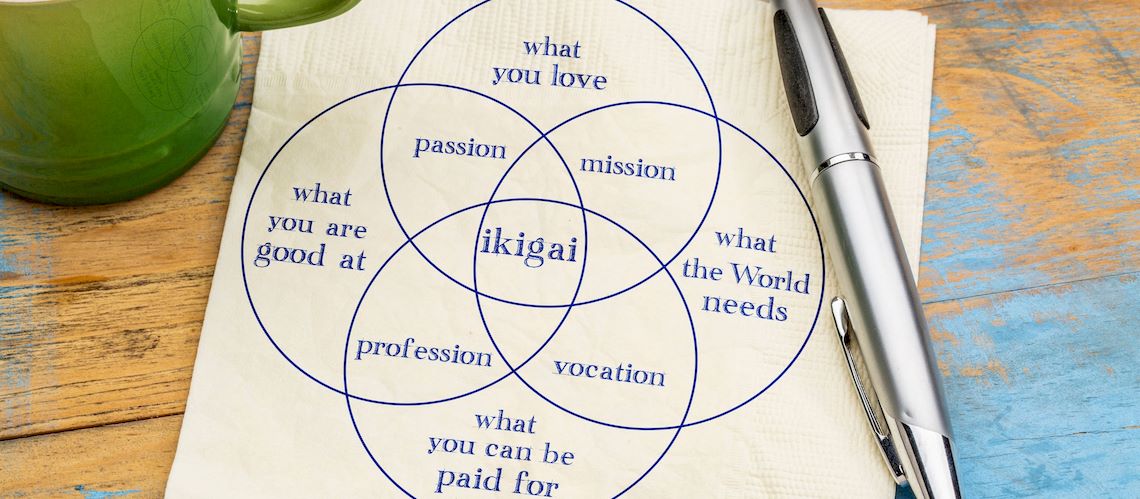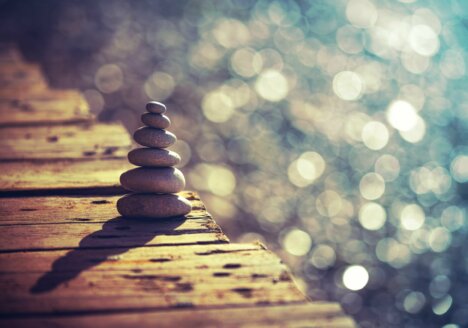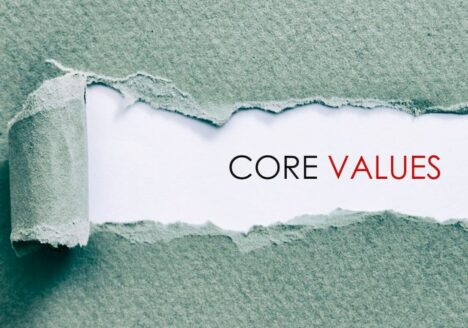Ikigai, a Japanese term meaning “a reason for being,” represents the intersection of purpose, passion, and fulfillment in life. It embodies the alignment of what one loves, what one is good at, what the world needs, and what one can be rewarded for. In the Self Matrix Framework, which emphasizes the integration of body, mind, and spirit for overall well-being, ikigai plays a pivotal role in fostering a sense of holistic balance. This article explores the concept of ikigai and its relevance to the Self Matrix framework by examining how it impacts mental, emotional, and physical well-being, supported by extensive research.
Definition
Ikigai encapsulates a multifaceted approach to well-being, integrating both hedonic (pleasure and satisfaction) and eudaimonic (personal growth and self-realization) dimensions of happiness. According to Shirai et al. (2022) and Tanno et al. (2009), ikigai reflects a deep sense of purpose that is closely linked to one’s intrinsic motivations and desires. It emphasizes the joy derived from living a life of meaning and contributing positively to society. This sense of purpose and fulfillment is central to overall well-being, particularly in maintaining a balance between emotional and physical health.
History and Origins
The concept of ikigai is deeply rooted in Japanese culture, where it has long been considered an essential element of life. In traditional Japanese society, ikigai is not viewed as a singular pursuit but as a holistic, lifelong journey that evolves with an individual’s changing circumstances and roles in life (Shirai et al., 2006). As the concept of ikigai has gained international recognition, its applications have expanded beyond its cultural origins, influencing fields such as psychology, medicine, and gerontology. For example, studies like those by Fido et al. (2019) validate the relevance of ikigai in cross-cultural settings, demonstrating its universal applicability.
Principles and Concepts
Ikigai’s core principles align with the Self Matrix Framework by addressing three interconnected dimensions: body, mind, and spirit. The pursuit of ikigai promotes a balance between these aspects, supporting personal fulfillment and well-being.
- Body: The physical benefits of ikigai are well-documented, particularly among older adults. Research indicates that individuals with a strong sense of ikigai are more likely to engage in healthier behaviors, such as regular physical activity and balanced diets (Okuzono et al., 2022; Goto, 2024). These behaviors, in turn, contribute to improved physical health outcomes, such as reduced risk of cardiovascular disease and enhanced longevity (Shirai et al., 2022; Tanno et al., 2009).
- Mind: Ikigai also plays a crucial role in fostering mental well-being. Studies have shown that individuals who possess a strong sense of purpose are less likely to suffer from anxiety and depression and are more likely to report higher levels of life satisfaction (Wilkes et al., 2022; Okuzono et al., 2022). This connection between mental health and ikigai underscores its significance in achieving a balanced life.
- Spirit: The spiritual dimension of ikigai relates to an individual’s connection to their community and broader purpose in life. Japanese culture emphasizes social harmony and interdependence, and ikigai is often derived from contributing to society and maintaining meaningful relationships (Shirai et al., 2006; Seko & Hirano, 2021). This sense of connection and belonging is essential for spiritual well-being, fostering a deep sense of satisfaction and pride.
Benefits
Ikigai provides a wide range of benefits that directly contribute to holistic well-being, aligning with the Self Matrix Framework.
- Physical Health: Individuals who maintain a sense of ikigai often experience better physical health, including lower rates of cardiovascular mortality. The Japan Collaborative Cohort Study found that individuals with ikigai had a significantly lower risk of heart disease and other stress-related illnesses (Shirai et al., 2022; Tanno et al., 2009).
- Mental Health: Ikigai is strongly correlated with improved mental health outcomes. For example, Wilkes et al. (2022) and Okuzono et al. (2022) reported that people with a strong sense of ikigai are less likely to experience anxiety and depression, leading to higher overall life satisfaction.
- Longevity: Studies have shown that having a sense of purpose in life, or ikigai, contributes to increased longevity. In a cross-sectional study, Goto (2024) found that older adults who reported a strong sense of ikigai had longer life spans and better health outcomes compared to those without a defined sense of purpose.
- Social Well-Being: Maintaining ikigai is closely linked to social engagement and support. Seko and Hirano (2021) found that older adults who actively participated in community activities reported higher levels of ikigai, which in turn led to improved physical and emotional health.
Applications
Ikigai has been widely applied in various life stages and contexts, making it a versatile tool for promoting well-being in the Self Matrix Framework.
- Older Adults: Among older populations, ikigai plays a crucial role in promoting active aging. Research shows that older adults with a strong sense of ikigai are more likely to remain socially engaged and physically active, which contributes to better health and longevity (Tomioka et al., 2016; Goto, 2024).
- Adolescents and Young Adults: Ikigai training programs for adolescents and young adults have demonstrated positive effects on mental health and resilience. Huwae (2023) reported that ikigai training helps young people find meaning and purpose, leading to improved self-esteem and emotional well-being.
- Crisis Situations: The role of ikigai during times of crisis has also been explored. For instance, after the 2011 earthquake in Japan, maintaining a sense of ikigai was found to help individuals cope with stress and trauma (Ishida, 2011). Similarly, during the COVID-19 pandemic, Watanabe (2024) found that individuals who retained a sense of ikigai reported better mental health outcomes despite the social isolation caused by lockdowns.
Scientific Evidence
The scientific basis for ikigai’s benefits is well-supported by research. Studies like the Japan Collaborative Cohort Study (Shirai et al., 2022) demonstrate the profound impact of ikigai on physical health, particularly in reducing cardiovascular mortality. Additionally, psychological research highlights its role in enhancing mental health, with individuals reporting lower rates of anxiety and depression when they have a strong sense of purpose (Wilkes et al., 2022; Okuzono et al., 2022). These findings provide robust evidence of ikigai’s role in promoting holistic well-being.
How to Get Started
To cultivate a sense of ikigai, individuals are encouraged to reflect on four key questions:
- What do you love?
- What are you good at?
- What does the world need?
- What can you be rewarded for?
Finding the intersection of these elements provides a foundation for building a life of purpose and meaning. Engaging in activities that promote self-reflection, such as journaling, mindfulness practices, or community involvement, can help individuals discover and deepen their ikigai.
Case Studies or Testimonials
Numerous case studies highlight the benefits of ikigai across various populations. For example, Tomioka et al. (2016) found that elderly individuals with hobbies and a strong sense of purpose had lower mortality rates and maintained higher levels of functional independence. Similarly, research by Eshak et al. (2023) demonstrated that maintaining ikigai helped mitigate the effects of work and family conflicts, leading to better mental health outcomes among both Japanese and Egyptian civil workers.
Conclusion
Ikigai is a profound and multifaceted concept that promotes holistic well-being by integrating the body, mind, and spirit. Its proven benefits in enhancing physical health, mental clarity, emotional resilience, and social connections make it a valuable framework within the Self Matrix Framework. By fostering a sense of purpose and meaning, ikigai supports individuals in achieving a balanced, fulfilled life, contributing to overall well-being and longevity.
References
Garcia, H., & Miralles, F. (2017). Ikigai: The Japanese Secret to a Long and Happy Life. Penguin Books.
Buettner, D. (2010). The Blue Zones: Lessons for Living Longer from the People Who’ve Lived the Longest. National Geographic Society.
Sone, T., Nakaya, N., Ohmori, K., Shimazu, T., Higashiguchi, M., Kakizaki, M., … & Tsuji, I. (2008). Sense of life worth living (ikigai) and mortality in Japan: Ohsaki Study. Psychosomatic Medicine, 70(6), 709-715.
Belice, T., Gursoy, U., Murakami, İ., Demir, İ., Yüksel, A., & Akçiçek, S. (2022). The Turkish version of the Ikigai-9 scale: a validity and reliability study. https://doi.org
Eshak, E., Baba, S., Yatsuya, H., Iso, H., Hirakawa, Y., Mahfouz, E., … & El-Khateeb, A. (2023). Work and family conflicts, depression, and “ikigai”: a mediation analysis in a cross-cultural study between Japanese and Egyptian civil workers. Journal of Epidemiology, 33(7), 360-366. https://doi.org
Fido, D., Kotera, Y., & Asano, K. (2019). English translation and validation of the Ikigai-9 in a UK sample. International Journal of Mental Health and Addiction, 18(5), 1352-1359. https://doi.org
Goto, T. (2024). Biopsychosocial consideration of ikigai in older adults in Japan through a cross-sectional study. Geriatrics, 9(3), 78. https://doi.org
Huwae, A. (2023). Empowering adolescents in orphanages: unveiling life meaning through ikigai training. Counsenesia Indonesian Journal of Guidance and Counseling, 4(2), 75-84. https://doi.org
Ishida, R. (2011). Enormous earthquake in Japan: coping with stress using purpose-in-life/ikigai. Psychology, 2(8), 773-776. https://doi.org
Kinoshita, S., Hirooka, N., Kusano, T., Saito, K., & Nakamoto, H. (2020). Does improvement in health-related lifestyle habits increase purpose in life among a health literate cohort? International Journal of Environmental Research and Public Health, 17(23), 8878. https://doi.org
Okuzono, S., Shiba, K., Kim, E., Shirai, K., Kondo, N., Fujiwara, T., … & VanderWeele, T. (2022). Ikigai and subsequent health and wellbeing among Japanese older adults: longitudinal outcome-wide analysis. The Lancet Regional Health – Western Pacific, 21, 100391. https://doi.org
Randall, N. (2023). Understanding the connection among ikigai, well-being, and home robot acceptance in Japanese older adults: mixed methods study. JMIR Aging, 6, e45442. https://doi.org
Sartore, M. (2023). An integrated cognitive-motivational model of ikigai (purpose in life) in the workplace. Europe’s Journal of Psychology, 19(4), 387-400. https://doi.org
Seko, K., & Hirano, M. (2021). Predictors and importance of social aspects in ikigai among older women. International Journal of Environmental Research and Public Health, 18(16), 8718. https://doi.org
Shirai, K., Iso, H., Fukuda, H., Toyoda, Y., Takatorige, T., & Tatara, K. (2006). Factors associated with “ikigai” among members of a public temporary employment agency for seniors (silver human resources centre) in Japan; gender differences. Health and Quality of Life Outcomes, 4(1). https://doi.org
Shirai, K., Kimura, T., Ikehara, S., Tamakoshi, A., & Miyazaki, J. (2022). Purpose in life (ikigai) and employment status in relation to cardiovascular mortality: the Japan Collaborative Cohort Study. BMJ Open, 12(10), e059725. https://doi.org
Tanno, K., Sakata, K., Ohsawa, M., Onoda, T., Itai, K., Yaegashi, Y., … & Tamakoshi, A. (2009). Associations of ikigai as a positive psychological factor with all-cause mortality and cause-specific mortality among middle-aged and elderly Japanese people: findings from the Japan Collaborative Cohort Study. Journal of Psychosomatic Research, 67(1), 67-75. https://doi.org
Tomioka, K., Kurumatani, N., & Hosoi, H. (2016). Relationship of having hobbies and a purpose in life with mortality, activities of daily living, and instrumental activities of daily living among community-dwelling elderly adults. Journal of Epidemiology, 26(7), 361-370. https://doi.org
Watanabe, T. (2024). Effects of changes in frequency of going out during the COVID-19 pandemic on ikigai (sense of purpose in life) and mental health in middle-aged and older adults in Japan. Journal of Cross-Cultural Gerontology, 39(2), 125-135. https://doi.org
Wilkes, J., Garip, G., Kotera, Y., & Fido, D. (2022). Can ikigai predict anxiety, depression, and well-being? International Journal of Mental Health and Addiction, 21(5), 2941-2953. https://doi.org
Şimşek, O., Kaya, A., Çevık, O., & Koçak, O. (2023). How is the problematic smartphone use affected by social support? A research model supported by the mediation of ikigai. Current Psychology, 43(2), 1102-1117. https://doi.org




